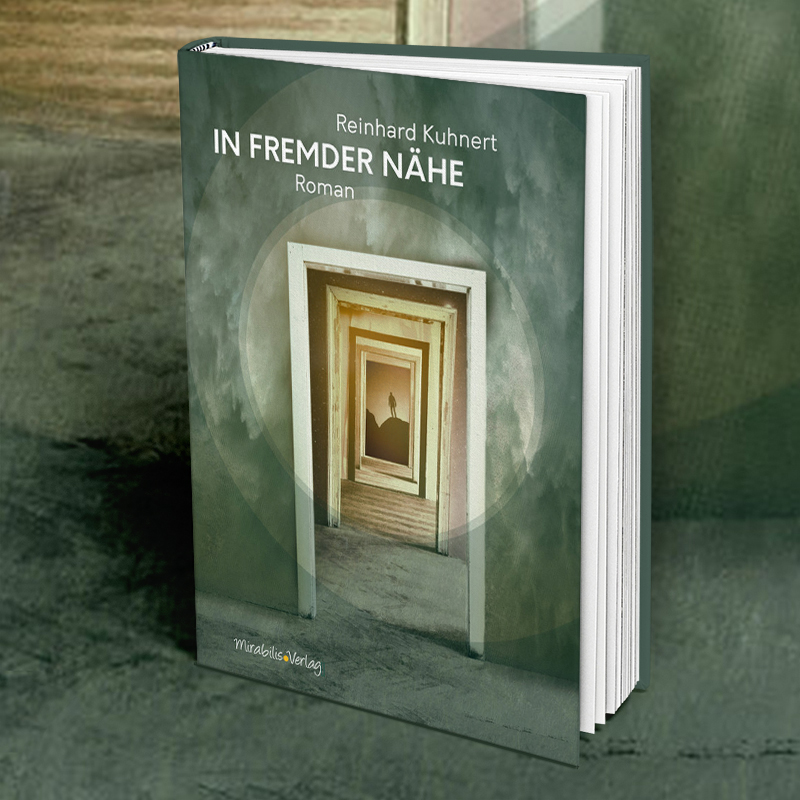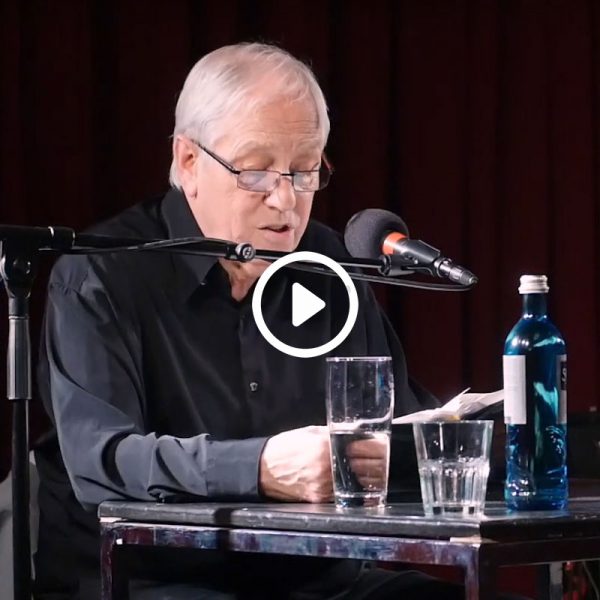Mitte der Achtzigerjahre. Berlin und ganz Deutschland teilt eine Mauer. Elias Effert ist Theatermann: Er lebt in Ost-Berlin als Stückeschreiber, Schauspieler, Liedermacher. Als er mit seinen Texten die Grenze der zu duldenden Kritik mehrfach überschreitet, geben ihm die Kunstwächter in der DDR deutlich zu verstehen, dass seine Arbeiten nicht mehr erwünscht sind. Er kann gehen. Nach einer längeren Wartezeit endlich in West-Berlin, findet er sich in einer Welt wieder, die trotz der Nähe fremd für ihn ist. Hier gelten andere Spielregeln. Auch wenn sich nach einiger Zeit erste Erfolge einstellen, bereitet es ihm nach wie vor Schwierigkeiten, ein Westler zu werden. Als die Mauer fällt, muss Effert feststellen, dass er nun endgültig zwischen den west-östlichen Stühlen sitzt. Dann öffnet sich am Ende unerwartet ein anderer Weg für ihn.
A Proximity so Alien
(by Reinhard Kuhnert)
Cold War Germany, 1985. The infamous Wall is ripping Berlin and the country apart. Elias Effert is a true blooded thespian. His world is the stage. As playwright, director and as songsmith to boot. The East German Republic’ censuring guardians of arts do loathe his style, blocking and vitiating further work and finally expel him.
Arriving in West Berlin only the director of a local stage is his welcome committee, Joachim. Help is proffered spontaneously. Effert is reluctant. The other option would be Caroline. A West Berlin friend, socialite, with an affinity that dates way back to his wild heydays in the East. Though to live with her is tempting Elias is unflinchingly poised to go back to work as soon as possible. The sun of success is flattering him and promptly problems arise. To slough off skin and past and hoping for instant acceptance by the maddening western crowd turns out to be deceptive. Due to divergent rules of the game. Adumbrated by nobody as he suddenly realizes.
The alleged proximity has alienated him!
At the end there is an unexpected twist, the classic denouement.
Extract:
Paradise lost….?
Matthias Kramer and Elias Effert met at their favourite pub in Charlottenburg again on a day in November. A month after the despicable Wall ‘s demise. A German November is burdened with all kind of demise memories. This demise was, of course, the main topic.
“A toast to the new time!” Kramer raised his beer just to reveal, resonating pride, that recently he had visited East Berlin. “I felt like coming home at last”, he said. The border opening seemed to be a blessing for Kramer.
“Would you like to move back?” inquired Effert.
“Ask my wife, for her the whole thing is a gigantic swindle.“ He waved it off. “How do you feel about it?“
“My enthusiasm is limited“ admitted Effert. “Sooner or later we will see here people who were responsible that I left the so called German Democratic Republic. A departure that was a cross between ‘running away’ and being booted out. Either they will seriously assert that ‘things have never been so bad’, or they profess that they too belonged for many years to ‘the Silent Opposition’. For us these purported ‘Secret Dissidents’ will be more annoying than others. I’ll tell you why. They will twist our words the moment we remember what they really did in their Republic.”
“That wouldn’t bother me at all.” Kramer replied dryly. “I never came across that type of rabble-rousing turncoat. If I would meet someone, who tried to tell me that ‘things were not that bad’, basically I would agree.”
“My belly ache for a different reason. Now many people over there will completely lose their marbles. Finally, the cornucopia of the West is in reach of their fingertips. The only question is when will the pre-programmed hangover kick in? The moment they realize how permanent employment from Cradle to Coffin doesn’t exist in the West? The factory closed down, not profitable anymore. The constant rent increases are hitting the roof. When they learn that the ‘Real West‘ became real only on TV advertising spots? Where everybody is fighting for himself, under the premise: Only the Strong Survives!“
Kramer was enraged. He envisaged this Menetekel written on the wall. Worse on the wicked wall that once divided the country.
“Listening to you half of the 17 million who lived in the German Democratic Republic should commit suicide for having lost the Paradise.” Effert retorted. Which was swatted away by Kramer.
“Won’t happen that way. The media will only flaunt the winners. Thus the losers could feel that it is their own fault to be down and out. The revolution doesn’t gobble it’s children, Elias. You’ll see in no time the children discarded the revolution.”




 Reinhard Kuhnert – Lesung seines Romans „In fremder Nähe“, Roter Salon Volksbühne Berlin 2019 (youtube)
Reinhard Kuhnert – Lesung seines Romans „In fremder Nähe“, Roter Salon Volksbühne Berlin 2019 (youtube)